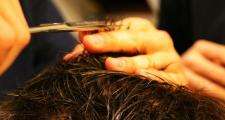Drug and alcohol hair testing could be getting it wrong

Hair strand tests that detect drugs or excessive drinking - used to make decisions in family courts - are unreliable and resulting in miscarriages of justice, experts warn.
They claim results supplied by drug testing companies are frequently misleading and should not be used as evidence. Paul Hunter, founder of Forensic Testing Service (FTS), who has worked in the field of drug and alcohol testing field for 15 years, said: “Every day there will be miscarriages of justice occurring because of this process.
“Currently it’s assumed that when drugs are found in the hair above a defined level then you are a drug user but we have copious amounts of data that shows that is not the case.
“Things like hair colour, race, how often you shampoo your hair, a whole range of factors will influence what’s found in the hair.
“The biggest failing at the moment is that services are instructing drug tests but not instructing an expert to carry out a full forensic investigation, without which it is not possible to interpret the evidence.
“An expert would look at the bigger picture, things like the environment, do they live with a drug user, a whole range of factors. The test result is just one of numerous other factors that have to be established and considered.”
Hunter urged social workers to “empower themselves to challenge the evidence” presented by drug companies.
“It is crucial that all those involved in these cases, including social workers, should know what constitutes reliable evidence.”
Hair strand testing has been used for around 30 years in family courts. Results are frequently used as irrefutable evidence of drug or excessive alcohol use upon which life-changing decisions are made.
Sarah Branson, a barrister at Coram Chambers specialising in public law proceedings involving children and families, said: “The family court is the only jurisdiction that gets a hair strand testing company to provide a report about what it means.
“If you were looking at the Coroner’s Court or criminal court, you’d have a proper clinical toxicologist who would analyse the results because the stakes are so high.
“But when you are talking about someone’s baby potentially being adopted the stakes are just as high.”
Branson also warned of racial biases, with ethnic minority people more likely to test above the positive line.
“There was a study that looked at variations within black hair and the racial bias was clearly set out. Asian people with black hair were right at the top.”
Different companies can also produce different results for the same sample, said Branson.
“I had a case where a Black mother tested positive according to one testing company. She paid for another test that came back negative, with the same piece of hair and same period of time, because of lab variation.”
Branson claimed cash-strapped local authorities are tempted to contract out to companies that promised to do testing “faster and cheaper”.
“You get what you pay for,” she said.
“Local authorities have to take responsibility as so many of them have contracts with hair strand testing companies purely on the basis of price.”
For more information and resources visit coramchambers.co.uk/resources/hair-strand-testing-resources
